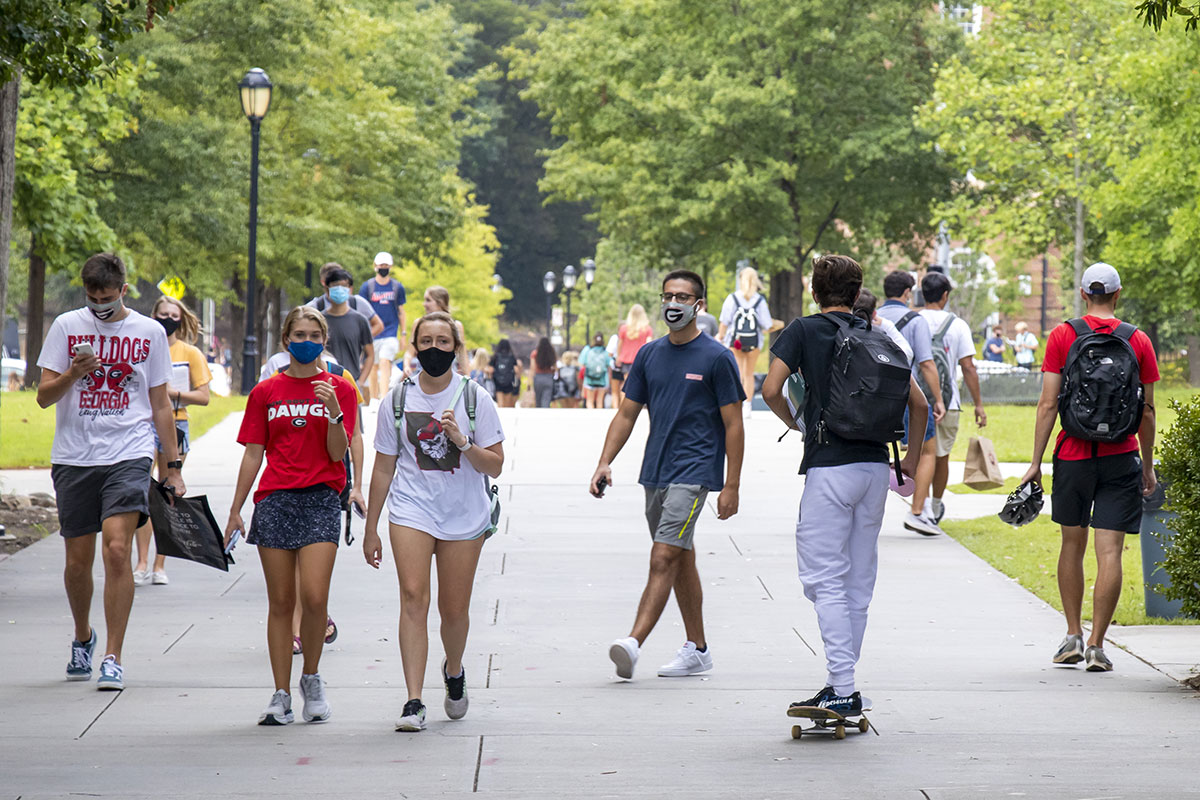“A perfectly functioning market is a beautiful thing. It’s also vanishingly rare,” write TC’s Sarah Cohodes, Associate Professor of Economics & Education, and Susan Dynarski, Professor of Public Policy, Education & Economics at the University of Michigan, in an opinion piece in The New York Times. Case in point, the authors write: higher education’s handling of the coronavirus pandemic, which has created a “classic market failure.”

THINKING ABOUT SAFETY Sarah Cohodes, Associate Professor of Economics & Education, has previously written about how to reopen schools safely during the COVID pandemic. (Photo: TC Archives)
[Read the full New York Times piece by Cohodes and Dynarski. Writing in The Atlantic earlier this year, Cohodes also published a plan for reopening schools safely.]
A pandemic is powered by the ultimate negative externality. The very act of breathing can spread a deadly disease.
After closing early last spring in a bid to contain the virus, many colleges and universities reopened their campuses this fall because they needed the revenue and were afraid of losing it to competitors. It was a logical move in a free-market economy. But by allowing students to return, many of them created hotbeds of viral transmission — not only on campuses but throughout the surrounding communities. Some were forced to shut down again and send students back home, incurring even more financial costs. Ultimately, the debacle has ended up illustrating a secondary but important economic tenet: When facing “negative externalities,” free markets require government intervention if they are to avoid harming innocent bystanders. They must be induced by government regulation to act not in their self-interest, but in the interest of the common good.
“A pandemic is powered by the ultimate negative externality,” write Cohodes and Dynarski. “The very act of breathing can spread a deadly disease.”
Competitive, free markets work when individuals and institutions pursuing their own interests converge, making everyone best off. In the case of colleges reopening, self-interested action has instead led to a predictable market failure: fueling viral spread.
They go on to argue that “countries where the government traditionally plays a more active role in shaping markets have had more success in changing behavior and controlling the pandemic.” In contrast, “competitive, free markets work when individuals and institutions pursuing their own interests converge, making everyone best off. In the case of colleges reopening, self-interested action has instead led to a predictable market failure: fueling viral spread.”
